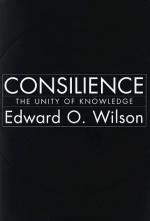|
This section contains 747 words (approx. 2 pages at 400 words per page) |

|
Ethics and Religion Summary and Analysis
Ethics has been constructed around the notion that justice is independent of human existence or that it has been invented by humans. These choices unveil the way we view ourselves although it cannot be determined by pure logic. Moral reasoning, however, is connected with the natural sciences. Natural law inspired natural rights. The power of these transcendental statements is used by Thomas Jefferson who, following John Locke, uses secular and religious presumptions in his Declaration of Independence. Transcendentalism is used to validate ethics, as theologians ascribd natural law to God's will. Natural law theory is compelling, although transcendentalism is used to fight wars, where each side regards their causes as sacred.
Ethics can be viewed as a code of principles. Their grounds are established by philosophers but they determine cultures that flourish. Effective ethical codes are based...
(read more from the Ethics and Religion Summary)
|
This section contains 747 words (approx. 2 pages at 400 words per page) |

|




